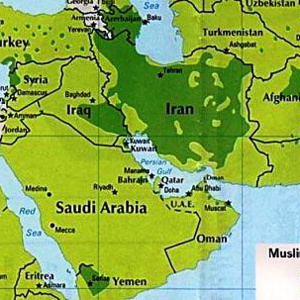Tough Days for Persian Gulf Shi’as

This is the situation in Bahrain: Parliamentary elections are on the way, and what were supposed to be the most competitive and clean elections to date are in fact going to become the tensest—not only for Bahrain, but for the entire region.
A number of clerical figures have been arrested in this tiny Persian Gulf island—needless to say they are Shi’as—accused of subversion and plotting against the royal family. Manama streets reverberate under the feet of Shi’a demonstrators, and violence is rife. Protestors block the streets, burn tires, and stand against police patrols dispatched by the Bahraini government.
In its latest order, the government of Bahrain has barred Shi’a clerics from preaching in their sect’s mosques, Shi’a gatherings are banned, and Parliamentary candidates are purged to assure no subversive Shi’a will find his way into the assembly.
On Sunday, Bahraini officials confiscated the passports of Sheikh Hassan an-Najati, Grand Ayatollah Sistani’s representative in Bahrain, and his family, and revoked his citizenship. The justification offered by the interior ministry is hard to buy.
So far, Bahraini officials have adopted a rather ambivalent approach toward Iran’s role in the unrest. Security officials and Bahraini police have denied Iran’s role, while the Arab media –not unexpectedly- have begun another round of the smear campaign against Tehran.
The story betrays a similar plot in Kuwait. While the Wahhabi-dominated politics of the 1980s are not history, and Shi’as were enjoying their breathing interval, even entering the Parliament, recent months have witnessed mounting pressures against the minority Muslim sect, with provocative speeches targeted against them by radical Sunnis.
Take Bahrain and Kuwait, add a little bit of Lebanon, and spice it up with the Shi’as’ situation in Saudi Arabia. A little of Pakistan, Afghanistan, Morocco and Egypt will also help to get a clear picture of Shi’a’s current circumstances in the Muslim World—a phenomenon that cannot be irrelevant to mounting pressures on the only Shi’a state in the world, Iran. History has shown that whenever tension rises between Iran and other countries, particularly regional Arab states, Shi’as in other countries, eyed with suspicion as Iran’s agents in many Arab countries, have experienced hard times.

